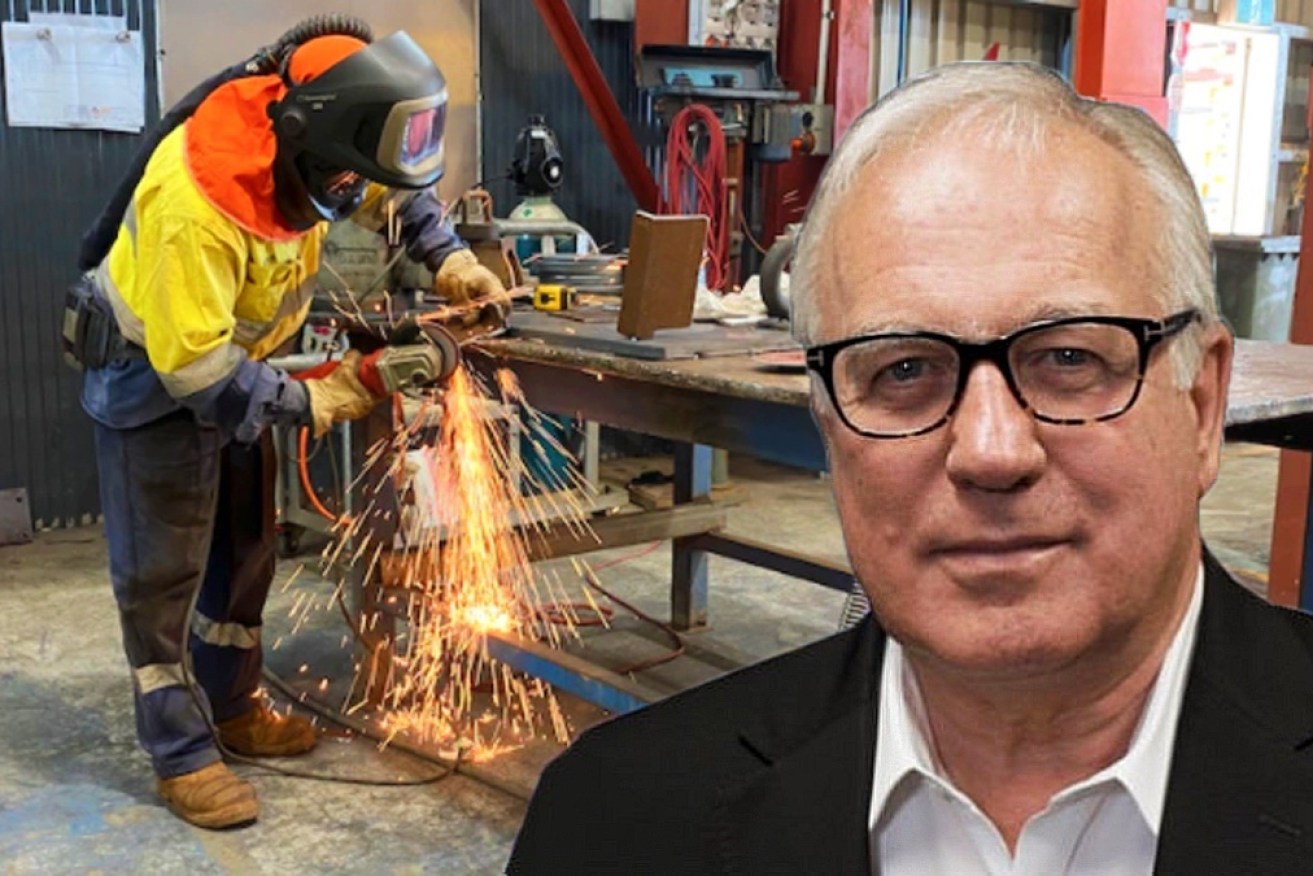Alan Kohler: Business is on a hiding to nothing at the jobs summit


Industries and jobs, that's what would do the most good in both Gaza and remote Indigenous communities. Photo: Getty/TND
Australia’s businesses will show up at this week’s Jobs and Skills Summit with one thing in mind – give us more workers.
Unions will be there with a different thing in mind – give us more money.
Both will probably end up disappointed, but business is on a hiding to nothing.
The increase in immigration likely to be announced at the summit will be a fraction of the hundreds of thousands of job vacancies there are at the moment and, anyway, migrants need to live somewhere and go shopping, so their demand creates almost as many new vacancies as people to fill them.
And education, even if the topic progresses from fine words to concrete ideas, is a long-term proposition and won’t solve the problem of 2022.
In any case, it’s possible that part of the problem is that too many people have been getting too educated doing arts and philosophy at university, rather than a trade or diploma at a TAFE.
As for the union demand for higher wages, the plan is for industry-wide collective bargaining to be allowed back, which the ACTU says will improve workers’ bargaining power.
Enterprise bargaining and its downside
A lot of independent observers and academics say that the enterprise bargaining system is broken because the world has moved on but, well, the world has moved on from when collective bargaining last applied in the 1980s.
The introduction of enterprise bargaining in 1991 was a spectacular own goal by Labor, and has been a disaster for the unions and workers’ bargaining power.
That’s because there is a fundamental problem with it: Strikes or work bans at one business simply serve it up to competitors for destruction – unless it’s a monopoly.
Striking against one company in a competitive industry actually reduces workers’ overall bargaining power because other companies not hit by the industrial action get stronger.
The only effective wage bargaining is industry wide, with all companies treated the same and forced to negotiate together … with a union.
Were that to be brought back, union membership would soar, the ACTU would be reborn, and a big part of the economy transformed through a shift in the balance of power from capital to labour.
But if the summit turns into a horse-trading session – give us collective bargaining and we’ll give you more migration – business would be the losers.
That’s because a bit more migration would not solve the shortage of workers in many industries, if any, but industry-wide collective bargaining would go a long way towards solving the unions’ problem of creeping irrelevance.
The Reserve Bank is watching
But the unions should also be careful what they wish for.
The Reserve Bank is on high alert, ready to crush the economy and get unemployment up if wages rise much faster than they are.

ACTU secretary Sally McManus says the RBA governor “isn’t quite in touch with reality”.
The unions and Greens have been preparing for the summit with a steady flow of assertions that the lack of wages growth is a crisis and needs to be the No.1 agenda item at the summit and for economic policy.
But interest rates have been lifted four times in four months, and probably will be again next week, because the RBA’s “business liaison” is saying wages are rising too fast already, or soon will be, which is quite at odds with the official statistics on the matter and the contention that it’s a crisis.
The RBA’s contention is that, if anything, the crisis is the other way round, so that aggregate demand in the economy needs to be reduced quick smart and unemployment increased to stop wages rising, even if it results in housing and mortgage distress.
Just another day in the complicated life of the economy.
The other main agenda item for the summit is superannuation, specifically getting hold of it for national interest projects, like infrastructure and housing.
This has little to do with jobs and skills, but is a perennial favourite at national policy off-sites like this because there’s just so much money, sitting there waiting to be better employed (according to those itching to employ it).
The super funds attending the summit will no doubt be polite and profess their undying wish to help. But there’s this thing called the ‘sole purpose test’, you know, so we can’t use the money for the national interest plus retirement savings because that would be two purposes, wouldn’t it?
On the other hand, give us something to invest in that either has high single-digit returns or a government guarantee, or both, and we’re yours.
The Keating solution
Paul Keating is proposing a way of using super money to get around the APRA risk-weightings for banks that bias them against lending to businesses in favour of real estate mortgages. (As little as 20 per cent of owner-occupier mortgages count for calculating the capital needed to support them, whereas all of the loans to small- to medium-size businesses count, making them much more expensive to fund, and therefore to be avoided at all costs. This is why there is so much housing debt.)
Australia has a surplus of capital and businesses that are starved for credit, so the owners have to sell equity to raise capital or put up their homes as collateral.
The problem is that super funds aren’t lenders, don’t know how to assess credit risk and don’t know enough about individual companies to lend to them – they mainly invest through fund managers.
Keating’s idea is that banks arrange business loans for super funds and do the credit assessments in return for 10 per cent of the loan plus fees.
He believes APRA would not risk-weight the 10 per cent portion as much as full business loans because of the presence of super funds, but that’s not confirmed.
But at least that idea is neither self-serving nor insufficient, like collective bargaining and more immigration.
Alan Kohler writes twice a week for The New Daily. He is also editor in chief of Eureka Report and finance presenter on ABC News








